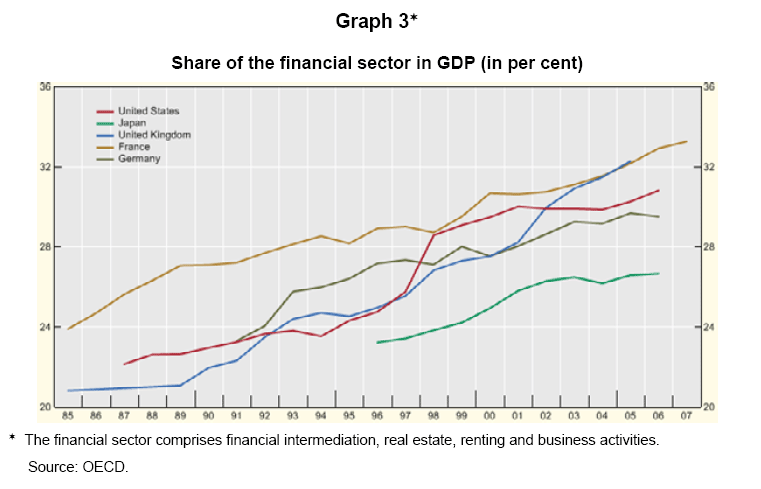Re: Bernanke's Next Parlor Trick
Old system:
Fed creates money out of thin air as it loans money to banks, who loan it to consumers, who spend it on SUVs and real estate speculation. Banks skim off fat profits.
New System:
Fed creates money out of thin air as it loans money to banks, who buy bonds, in effect loaning money to the Government, which spends it on pork barrelling, payoffs and makework schemes for social activists. Banks skim off fat profits.
The funny thing is that the markets only seem to worry about "monetarization" of debt if the Fed buys bonds directly with newly created money. If they create money out of thin air and loan it to JPM, and JPM buys bonds, then that's just the system at work, nothing to see here folks, move along.
Mish and Steven Keen will tell you that inflation can't happen because the system for transfering newly created money into the economy has broken down - the banks aren't lending.
But the banks ARE lending - to the government. That's what happens when you buy Treasuries - you're loaning money to the government. Duh.
So if the government is willing to step into the shoes vacated by the consumer and start spending, you have yourself a new mechanism for the transmission of inflation.
The current deflation environment is explained by the fact that it takes a long time for goverment spending to get moving - very little of the $700 billion stimulus package has made it out into the economy yet, not that it's much money anyway. I'd guess it will be another 12 months before the goverment starts to really hit its stride and starts to borrow and spend a trillion per quarter. First there needs to be a political environment that makes borrowing a trillion a quarter sounds like a GOOD IDEA - screams of "Do something, do something, anything!".
Look for that after the next leg down. People are not that scared yet,mostly in denial, you need real terror to generate enough goverment borrowing to create inflation.
Originally posted by Chomsky
View Post
Fed creates money out of thin air as it loans money to banks, who loan it to consumers, who spend it on SUVs and real estate speculation. Banks skim off fat profits.
New System:
Fed creates money out of thin air as it loans money to banks, who buy bonds, in effect loaning money to the Government, which spends it on pork barrelling, payoffs and makework schemes for social activists. Banks skim off fat profits.
The funny thing is that the markets only seem to worry about "monetarization" of debt if the Fed buys bonds directly with newly created money. If they create money out of thin air and loan it to JPM, and JPM buys bonds, then that's just the system at work, nothing to see here folks, move along.
Mish and Steven Keen will tell you that inflation can't happen because the system for transfering newly created money into the economy has broken down - the banks aren't lending.
But the banks ARE lending - to the government. That's what happens when you buy Treasuries - you're loaning money to the government. Duh.
So if the government is willing to step into the shoes vacated by the consumer and start spending, you have yourself a new mechanism for the transmission of inflation.
The current deflation environment is explained by the fact that it takes a long time for goverment spending to get moving - very little of the $700 billion stimulus package has made it out into the economy yet, not that it's much money anyway. I'd guess it will be another 12 months before the goverment starts to really hit its stride and starts to borrow and spend a trillion per quarter. First there needs to be a political environment that makes borrowing a trillion a quarter sounds like a GOOD IDEA - screams of "Do something, do something, anything!".
Look for that after the next leg down. People are not that scared yet,mostly in denial, you need real terror to generate enough goverment borrowing to create inflation.


Comment